|
TRANSLATE THIS ARTICLE
Integral World: Exploring Theories of Everything
An independent forum for a critical discussion of the integral philosophy of Ken Wilber
c  David Christopher Lane, Ph.D.
Professor of Philosophy, Mt. San Antonio College Lecturer in Religious Studies, California State University, Long Beach Author of Exposing Cults: When the Skeptical Mind Confronts the Mystical (New York and London: Garland Publishers, 1994) and The Radhasoami Tradition: A Critical History of Guru Succession (New York and London: Garland Publishers, 1992). David Christopher Lane, Ph.D.
Professor of Philosophy, Mt. San Antonio College Lecturer in Religious Studies, California State University, Long Beach Author of Exposing Cults: When the Skeptical Mind Confronts the Mystical (New York and London: Garland Publishers, 1994) and The Radhasoami Tradition: A Critical History of Guru Succession (New York and London: Garland Publishers, 1992).
THE STUDY OF CONSCIOUSNESS
Glimpses into the Life and Work of Great Thinkers in Neuroscience and Philosophy
Chalmers |
Changeux |
Chomsky |
Churchland, Paul |
Churchland, Patricia |
Crick |
Dennett |
Edelman |
Flanagan |
Humphrey |
Huxley |
Koch |
Leary |
Lilly |
McKenna |
Nagel |
Tononi
Daniel DennettCaptoria FrizellDaniel Clement Dennett III is an American philosopher, writer, and cognitive scientist whose research centers around the philosophy of the mind, the philosophy of science and the philosophy of biology. He was born March 28, 1942 in Boston Massachusetts. He spent the beginning part of his life in Lebanon during World War II because his father Daniel Clement Dennett Jr. was a secret agent for the Office of Strategic services. At the age of 5 his mother Ruth Majorie took him back to Massachusetts because his father died in an unexplained plane crash. He was introduced to the notion of philosophy at the age of 11 by a summer camp counselor. 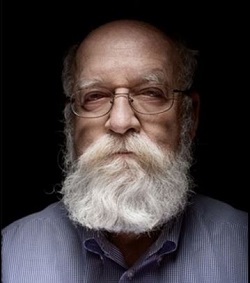 Daniel Dennett In 1959 he graduated from the Exter Academy. In 1963, he received his Bachelor of Arts in Philosophy at Harvard University. In 1965, he received his Doctor of Philosophy at the University of Oxford. He is heavily influenced by Charles Darwin, Richard Dawkins, David Hume, Gilbert Ryle, and W.V.O. Quine. He is an atheist and a secularist. His main interests are free will which is the ability to choose between different possible courses of action unimpeded, philosophy of religion, which is the examination of concepts involved in religious traditions and central themes of religion, cognitive science, which is the study of the mind and its processes, and the philosophy of the mind, which is a branch of philosophy that studies the ontology and nature of the mind and its relationship with the body.
He has received numerous prizes such as the Jean Nicod Prize (2001), Mind and Brain Prize (2011), and the Erasmus Prize (2012). As of 2017, he is the co-director of the Center for Cognitive Studies and the Austin B. Fletcher Professor of Philosophy at Tufts University. He is a member of the editorial board of the Ruthford Journals. In 2004, he was named Humanist of the Year by the American Humanist Association. He is part of several fellowships such as the Fulbright Fellowship and Guggemheim Fellowship and has become famous as one of the “Four Horsemen of Atheism”, along with the late Christopher Hitchens, Richard Dawkins, and Sam Harris. He is currently married to Susan Bell, has two children and five grandchildren and is an avid sailor. One of his most intriguing ideas is known greedy reductionism. Greedy reductionism according to Daniel Dennett in his 1995 book Darwin's Dangerous Idea, is a kind of erroneous reductionism (which doesn't provide much useful information), whereas "good" reductionism means explaining a thing in terms of what it reduces to systematically and accurately (thereby providing a rich composite of information). Greedy reductionism occurs when "in their eagerness for a bargain, in their zeal to explain too much too fast, scientists and philosophers ... underestimate the complexities, trying to skip whole layers or levels of theory in their rush to fasten everything securely and neatly to the foundation". He was heavily critical of B.F. Skinner's idea of behaviorism and stated that Skinner wanted to explain the concept in the simplest of terms (cheap reductionism), without defining the more complex and important aspects of human thought and decision making (expensive, useful reductionism). Another one of his key ideas focuses on the concept of free will. In "On Giving Libertarians What They Say They Want"—chapter 15 of his 1978 book Brainstorms—Dennett articulated the case for a two-stage model of decision making in contrast to libertarian views by stating “The model of decision making I am proposing has the following feature: when we are faced with an important decision, a consideration-generator whose output is to some degree undetermined, produces a series of considerations, some of which may of course be immediately rejected as irrelevant by the agent (consciously or unconsciously). Those considerations that are selected by the agent as having a more than negligible bearing on the decision then figure in a reasoning process, and if the agent is in the main reasonable, those considerations ultimately serve as predictors and explicators of the agent's final decision”. He thought that the ideas that people have when first faced to make a decision were not in their control. Those beginning ideas then become filtered out either subconsciously or consciously based on their relevance, in which the ideas that are not filtered out then become used to make a final decision. Dennett was heavily criticized by libertarian philosophers such as Robert Kane, whom rejected his idea of free will. Kane believed that random chance is not involved in decision making as that would eliminate a person's motives and reasons, character and values, and feelings and desires. The philosophy of mind is also one of his keen interests. He believed that the problem of explaining the mind has two parts, a theory of content and a theory of consciousness. Dennett explains his views of consciousness in his book Consciousness Explained by stating "all varieties of perception—indeed all varieties of thought or mental activity—are accomplished in the brain by parallel, multitrack processes of interpretation and elaboration of sensory inputs. Information entering the nervous system is under continuous 'editorial revision.'" He believed that consciousness has more than one layer and that it is more than just thoughts and ideas but emotions and feelings as well. He also believed that the content that is processed through the consciousness is automatic. These theories heavily support his theory of free will. In addition, Dennett has done a tremendous amount of research into the concept religion and often explains it as a process of evolution. His theory is that the concept of morality is an evolutionary process and not a naturalistic fallacy, which means that the abstract idea of ethics comes from people not a free-floating realm. He noted that clerics will continue to work in clergy positions even though they are atheists. They refuse to step away from the work due to fear of losing their jobs or not wanting to lose the benefits they have acquired. There is more information about his research in his book Caught in the Pulpit: Leaving Belief Behind which he co-authored with Linda LaScola. Dennett is not a supporter of artificial intelligence and believes that it is a danger to humans because humans have the potential to misunderstand AI's purpose and become slaves to its own power. Further Reading1. Freedom Evolves, Penguin Books; Reprint edition (January 27, 2004) 2. Intuition Pumps and Other Tools for Thinking, W. W. Norton & Company; 1 edition (May 5, 2014) 3. From Bacteria to Bach and Back: The Evolution of Minds, W. W. Norton & Company; 1 edition (February 7, 2017) 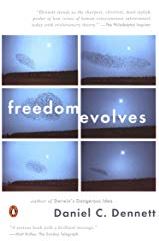 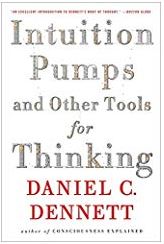 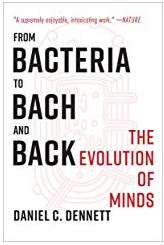 MSAC PHILOSOPHY GROUP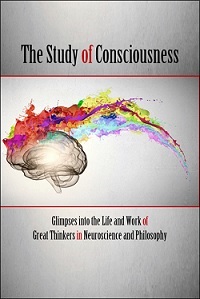
Human interest in the nature of consciousness dates far back to our ancestral past. However, it is only in the last century or so that researchers and philosophers have been able to tackle the problem in a more scientific way. This is primarily due to our increasing understanding of human physiology and how our brain functions. With the advent of ever more sophisticated technology—from fMRI scans, functional magnetic resonance imaging, to DARPA's neural engineering program, understanding neural “dust”—we are now able to not only create vivid simulations of cerebral activity but also to systematically reverse engineer the brain. Whether such empirical observations will unlock the secrets of self-reflective awareness is still open to vigorous debate. Nevertheless, the study of consciousness is now considered to be of elemental importance and has invited a large number of brilliant thinkers— from a wide range of disciplines, including mathematicians, quantum physicists, neuroscientists, and philosophers—to join in the discussions and offer their own contributions.
The following essays briefly explore the life and work of pioneers in the field of consciousness studies. Included in this eclectic mix are such notables as Giulio Tononi (University of Wisconsin), Paul and Patricia Churchland (University of California, San Diego), Noam Chomsky (M.I.T.), the late Timothy Leary and Terence McKenna, and Jean Pierre Changeux (Collége de France) among others.
Comment Form is loading comments...
|